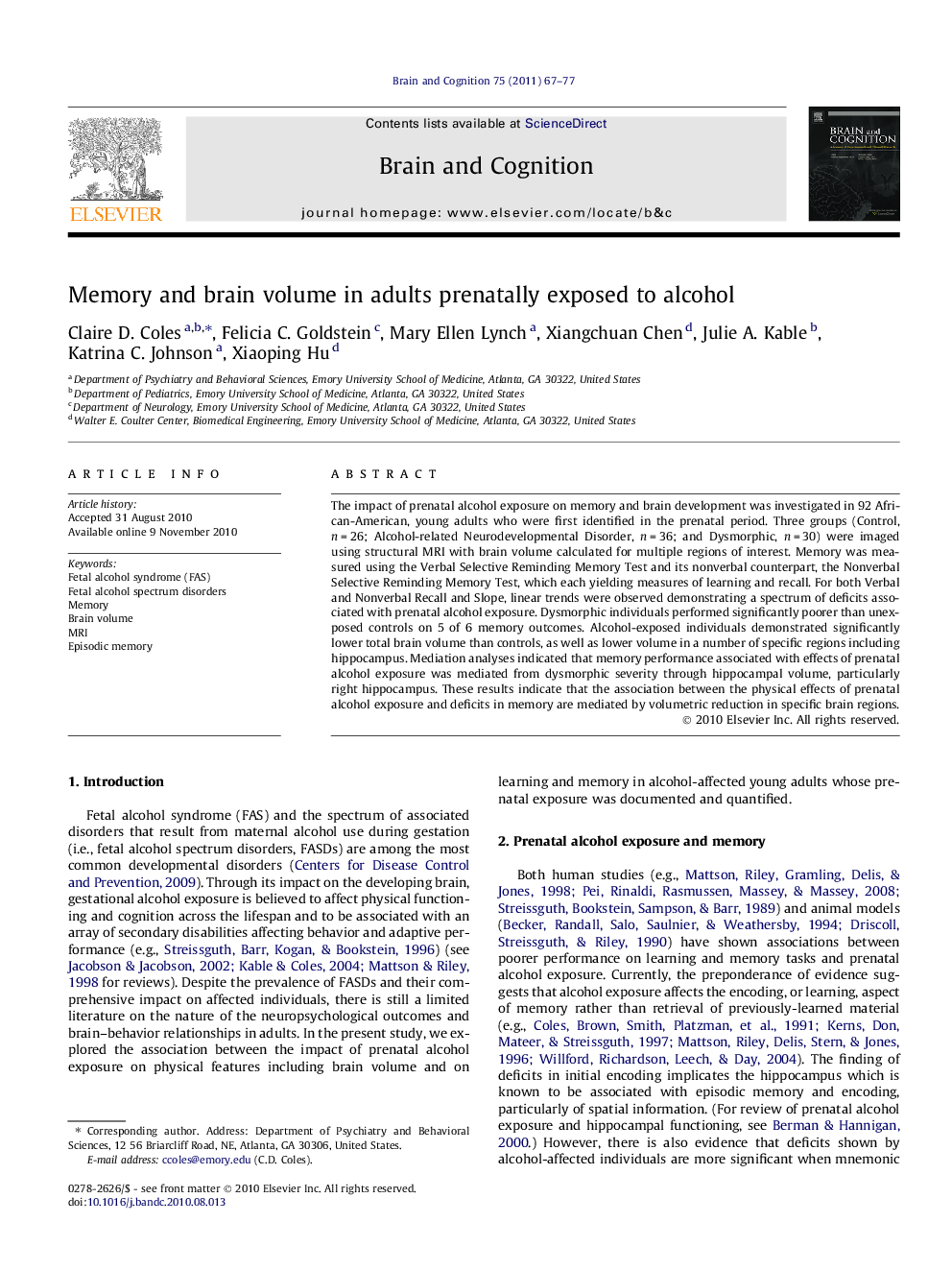| Article ID | Journal | Published Year | Pages | File Type |
|---|---|---|---|---|
| 924817 | Brain and Cognition | 2011 | 11 Pages |
The impact of prenatal alcohol exposure on memory and brain development was investigated in 92 African-American, young adults who were first identified in the prenatal period. Three groups (Control, n = 26; Alcohol-related Neurodevelopmental Disorder, n = 36; and Dysmorphic, n = 30) were imaged using structural MRI with brain volume calculated for multiple regions of interest. Memory was measured using the Verbal Selective Reminding Memory Test and its nonverbal counterpart, the Nonverbal Selective Reminding Memory Test, which each yielding measures of learning and recall. For both Verbal and Nonverbal Recall and Slope, linear trends were observed demonstrating a spectrum of deficits associated with prenatal alcohol exposure. Dysmorphic individuals performed significantly poorer than unexposed controls on 5 of 6 memory outcomes. Alcohol-exposed individuals demonstrated significantly lower total brain volume than controls, as well as lower volume in a number of specific regions including hippocampus. Mediation analyses indicated that memory performance associated with effects of prenatal alcohol exposure was mediated from dysmorphic severity through hippocampal volume, particularly right hippocampus. These results indicate that the association between the physical effects of prenatal alcohol exposure and deficits in memory are mediated by volumetric reduction in specific brain regions.
